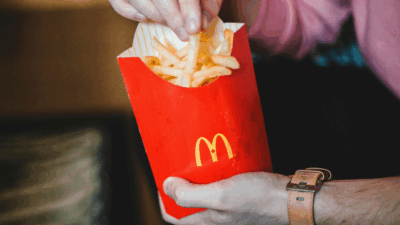TGI Fridays Files for Chapter 11 Bankruptcy
This weekend, TGI Fridays filed for Chapter 11 bankruptcy, making it the latest in its class to raise the white flag.
Sign up for smart news, insights, and analysis on the biggest financial stories of the day.
The hours have not been happy for TGI Fridays.
This weekend, the casual chain restaurant filed for Chapter 11 bankruptcy, making it the latest in its class to raise the white flag.
Party’s Over
TGI Fridays was pinched by the same forces afflicting all its industry peers: inflation, shifting consumer tastes, and increased competition from down-market options like Chipotle and Shake Shack. And, of course, the long hangover from a pandemic that shuttered restaurant locations and decreased foot traffic, which has stayed low. In a statement released Saturday, the company called the pandemic the “primary driver of our financial challenges.”
Since the start of the year, the chain, owned by TriArtisan Capital Advisors, has quietly been closing locations by the dozens across the US, marking the beginning of the end for a company that’s always pretended it was the end of the week:
- All 39 remaining locations owned directly by parent company TGI Fridays Inc. will remain open as the company undergoes restructuring, it said in a statement. Meanwhile, a separate entity, TGI Fridays Franchisor — which owns the brand and its IP, as well as 56 franchised locations — is not included in the proceedings.
- In court filings, TGI Fridays Inc. listed both its assets and liabilities as worth between $100 million and $500 million.
Join the Club: The bankruptcy adds TGI Fridays to a list this year that includes Red Lobster, Rubio’s Coastal Grill, and Italian chain Buca di Beppo. Meanwhile, Hooters is in talks with lenders and advisors about its own financial troubles, Bloomberg reported in September. Rest assured, casual-dining fans: Chili’s and Applebee’s are still alive and kicking. For now.












